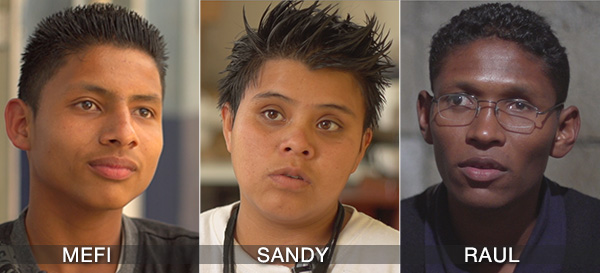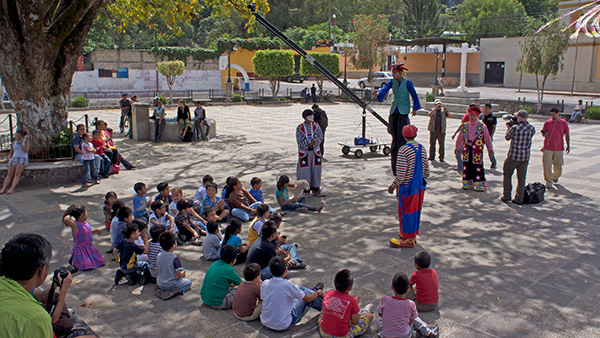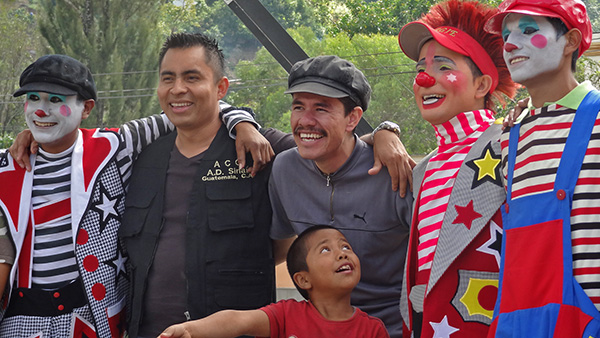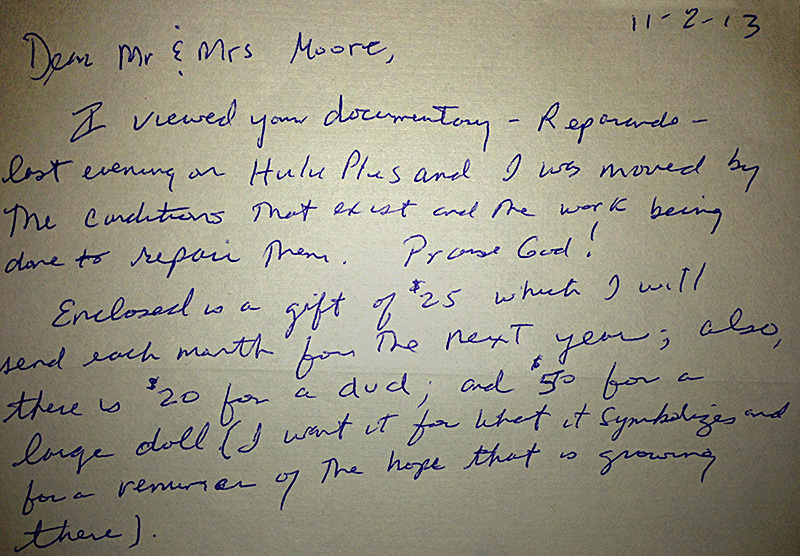I’m wrestling with Thanksgiving.
I’m not wearing a Lucha Libre mask, leaping high off the ropes to grapple a turkey—although that would be epic. I’m actually talking about being honest with myself regarding what I’m thankful for.
Typically, I express gratitude for the good things in my life: God, family, food, shelter, health, education, friends, travel—things that warm my heart and bring a smile to my face.
But what about the other stuff? What about the things that have angered me, saddened me, or hurt me? Am I thankful for those experiences? Depending on my perspective (and sometimes my lack of one), I can find lessons in anything.
I’ve been immersed in the “Becoming Fools” project for the last three years. It’s been a stressful journey, and I’ve found myself growing increasingly exhausted and less thankful for the opportunity to be involved. I used to feel similarly about “Reparando,” but that changed over time after we released the film.
Like most people, I forget too easily.
During my scouting trip for “Becoming Fools” in 2011, Tita personally invited me to attend a screening of “Reparando.” I was honored by the invitation, but I was also exhausted from two weeks of 16-hour days spent interviewing people and capturing footage in Guatemala City. Part of me wanted to just return to my room and sleep. I couldn’t understand why my presence mattered. I thought, “I am just a silly Gringo; they won’t care. Besides, I’m here for ‘Becoming Fools,’ not ‘Reparando.'”
But Tita was persistent. She genuinely wanted me to come. So, we drove straight from our production site across the city to a church near La Limonada. Tita met us outside the church with hugs, and we watched the film from the back of the room.
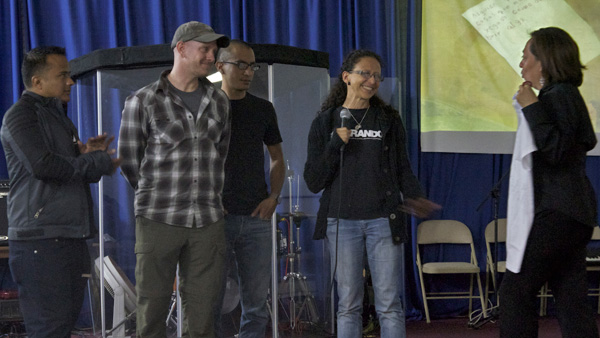
After the film ended, Tita called Shorty and me to come up to the front. She hugged me, and while everyone was clapping, they presented a gift from the people of La Limonada: a T-shirt covered with signatures from the residents of La Limonada. These were people who were very thankful for the film we made. I realized I could not have been more wrong about many things.
My perspective was renewed.
“Reparando” brought me closer to many important aspects of life—God, family, friends, education, and travel. On a personal level, it helped me understand my sons’ stories in a way I could never grasp otherwise. On a broader scale, “Reparando” has inspired countless resources that have supported missions, blessing people who struggle far more than I can imagine—people who are genuinely grateful.
I believe “Becoming Fools” will eventually have a similar impact. So why am I wrestling with feelings of gratitude over “Becoming Fools”? I’m human, and I forget. That’s why we are called to be transformed by the renewing of our minds—continuously refocusing our perspectives on the truth. We often forget, which is one of the reasons we celebrate Thanksgiving: to remember. I find myself personally challenged to recall things that might not easily fit into a warm and fuzzy Thanksgiving narrative. Most of the time, I just try to fit these experiences into the wrong perspective.
Here’s the essential message:
“Rejoice always, pray without ceasing, and give thanks in all circumstances; for this is the will of God in Christ Jesus for you.“ (1 Thessalonians 5:16-18)
Everything fits within the Thanksgiving framework when viewed from the right perspective. It’s not easy, but I hope that if I keep working at it, gratitude will ultimately prevail.
What aspects of Thanksgiving do you struggle with?



